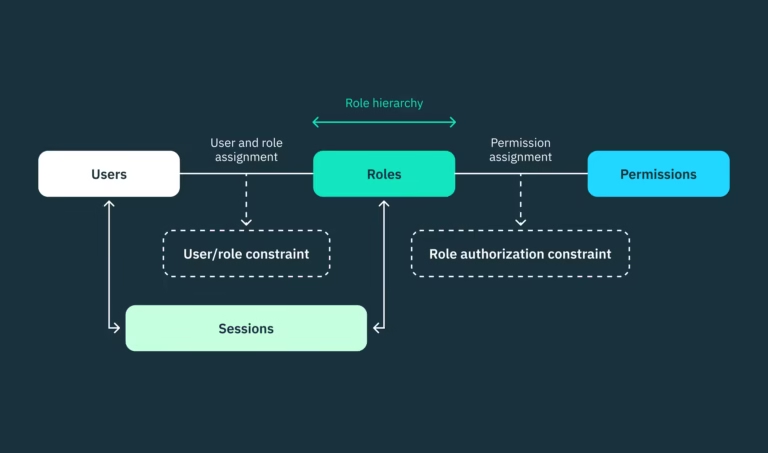
Introduction to Automation in Small Businesses
Automation tools have revolutionized the way small businesses operate by streamlining processes and reducing the manual effort required in daily tasks. These tools utilize software and technology to perform repetitive functions, thereby freeing up valuable time for business owners and employees. This time can then be redirected toward more strategic activities that drive growth, such as customer engagement and product development. With the help of automation, small businesses can substantially increase their efficiency and productivity.
One of the primary benefits of automation tools is their ability to significantly minimize human error. Manual data entry and other repetitive tasks are prone to mistakes, which can lead to costly consequences. By automating these tasks, small businesses can ensure accuracy and consistency, thereby improving overall operational reliability. This level of precision is particularly essential when dealing with inventory management, financial transactions, and customer relationship management, where errors can have serious impacts.
The competitive edge that automation provides is another critical advantage for small businesses. Larger enterprises often have more resources at their disposal, but by leveraging automation tools, smaller players can level the playing field. These tools enable small businesses to manage their operations more efficiently, reduce overhead costs, and allocate resources more effectively. Consequently, they are better positioned to compete with larger, more established companies.
Furthermore, automation facilitates the scalability of small businesses. As customer demand grows, automated systems can seamlessly handle increasing workloads without a proportional rise in labor costs. This scalability is crucial for businesses that aim to expand their market presence without overextending their budget. By adopting automation tools, small businesses can focus on core activities that promote growth, such as innovation, market expansion, and customer service enhancement.
When it comes to project management, small businesses can greatly benefit from using automation tools like Trello, Asana, and Monday.com. These tools streamline the processes of planning, scheduling, and tracking projects, which can alleviate the burden on team members and ensure that projects are completed efficiently and on time.
Trello

Trello stands out for its user-friendly interface and flexibility, catering to both simple and complex project needs. With its card-and-board system, Trello allows teams to easily outline tasks, assign them to team members, and set due dates. One of the key advantages of Trello is its ability to automate repetitive tasks through integrations known as “Power-Ups.” These integrations can automate everything from task assignments to reminders, boosting productivity and organization within the team.
Asana
Asana is another powerful tool that offers comprehensive project management solutions. It features advanced project timelines, task dependencies, and workload management, making it suitable for more intricate project requirements. Asana’s automation features include automated task assignments, where rules can be set to assign tasks based on certain triggers, and automated reminders that ensure team members are timely with their deadlines. This flexibility and automation allow small businesses to enhance their efficiency and keep projects on track.
Monday.com
Monday.com provides a highly customizable platform where businesses can design boards that match their unique workflows. It offers various automation capabilities, such as automated status updates, email notifications, and task assignments based on project milestones. This level of customization ensures that teams can maintain clear visibility over their projects and adhere to schedules efficiently.
These project management automation tools not only help small businesses stay organized but also facilitate seamless collaboration among team members. By integrating automation in the management of projects, these tools enable businesses to optimize their operations and focus on their core activities, ultimately driving growth and success.
Email Marketing Automation
In the modern landscape of small business operations, email marketing automation tools like Mailchimp, Constant Contact, and SendinBlue stand out as indispensable assets. These platforms streamline the process of sending marketing emails, allowing small businesses to maximize reach with minimal effort.
Mailchimp, for example, provides a versatile platform where users can design, send, and track email campaigns. It automates tasks such as follow-up emails and subscriber segmentation, ensuring that content is relevant and personalized. By leveraging its A/B testing feature, businesses can experiment with different subject lines or content styles to determine what resonates best with their audience. Simultaneously, comprehensive analytics offer insights into open rates, click-through rates, and overall engagement, allowing for data-driven decisions that enhance future campaigns.
Similarly, Constant Contact simplifies the complexities of email marketing. This platform offers an intuitive drag-and-drop editor, making it easy to create professional-looking emails. Automated email series can be set up to nurture leads or welcome new subscribers, ensuring consistent communication without repetitive manual effort. Constant Contact also excels in list management, automatically segmenting contacts based on various criteria such as engagement level or demographics, thereby helping small businesses target the right audience more effectively.
SendinBlue goes a step further by integrating SMS marketing with email campaigns, providing a multi-channel communication approach. The platform’s automation workflows are highly customizable, allowing for sophisticated marketing strategies. Features like automated transaction emails, which confirm a purchase or notify about shipping, improve customer satisfaction and retention. Analytics and heatmaps offer granular insights into user behavior, further refining marketing tactics.
Incorporating these email marketing automation tools can significantly elevate a small business’s marketing efforts. Automated follow-ups ensure no lead goes cold, while A/B testing and detailed analytics bring clarity to what strategies work best. Thus, harnessing the power of tools like Mailchimp, Constant Contact, and SendinBlue can drive efficiency and effectiveness in email marketing campaigns.
Social Media Management Tools
For small businesses, maintaining a consistent and engaging presence across multiple social media platforms can often be challenging. Social media management tools like Hootsuite, Buffer, and Sprout Social provide solutions by automating the process of scheduling posts, thereby enabling businesses to save valuable time.
Hootsuite stands out among these tools with its ability to manage all social media accounts from a single dashboard. It provides a comprehensive content calendar that allows businesses to schedule posts strategically. This ensures that content is consistently published at optimal times, enhancing visibility and engagement. Additionally, Hootsuite’s robust performance analytics offer insights into post effectiveness, helping businesses fine-tune their social media strategies.
Buffer is another powerful social media management tool that facilitates the automation of post scheduling across platforms like Facebook, Instagram, Twitter, and LinkedIn. Buffer’s simplicity is one of its distinguishing features, making it an excellent choice for small businesses. It offers a clear view of the posting schedule and suggests optimal times for posting based on audience engagement patterns. Moreover, Buffer’s detailed analytics provide valuable data on how posts are performing, driving more informed decision-making.

Sprout Social provides a more comprehensive toolkit for social media management. Beyond automated scheduling, Sprout Social offers features such as social listening, which tracks brand mentions across the web, and advanced reporting tools. The content calendar lets users plan, organize, and monitor their social campaigns effectively. Engagement tracking tools within Sprout Social also help businesses respond promptly to customer interactions, fostering stronger relationships with their audience.
By leveraging these social media management tools, small businesses can maintain a dynamic online presence with minimal manual effort. Automated scheduling, combined with insights from performance analytics and engagement tracking, ensures a more efficient and effective approach to social media marketing.
Customer Relationship Management (CRM) Software
Customer Relationship Management (CRM) software has become an indispensable tool for small businesses aiming to streamline their customer interactions and sales processes. Leading players in the CRM market, such as Salesforce, HubSpot, and Zoho CRM, offer robust solutions tailored to the needs of businesses of various sizes.
A CRM system centralizes customer data, allowing businesses to efficiently manage and analyze customer interactions throughout the lifecycle, from acquisition to retention. Salesforce, for instance, excels in providing a customizable platform that integrates seamlessly with other business tools, while HubSpot is renowned for its user-friendly interface and comprehensive marketing automation features. Zoho CRM, on the other hand, offers an affordable yet powerful suite of tools ideal for small businesses.
One of the critical benefits of adopting CRM software is the automation of lead capturing. Automated lead capturing ensures that no potential customer is overlooked, enhancing the efficiency of sales teams. Moreover, CRM tools can automatically schedule follow-up reminders, ensuring timely communication with prospects and reducing the risk of missed opportunities. Personalized customer communication is another remarkable feature; CRMs analyze customer data to provide insights that help businesses tailor their interactions, fostering stronger customer relationships.
In addition to improving customer relations, CRM software enhances the management of sales pipelines. Businesses can track the progress of each deal, forecast sales, and identify bottlenecks in real-time. Furthermore, CRMs provide valuable metrics and reports that help business owners make informed decisions, ultimately driving growth and profitability.
Overall, CRM software like Salesforce, HubSpot, and Zoho CRM, is crucial for small businesses aiming to optimize their customer relationship management. By automating essential tasks and offering in-depth insights, these tools enable businesses to focus more on strategic growth initiatives and less on administrative burdens.
Automation in accounting and invoicing can be a game-changer for small businesses. Tools such as QuickBooks, Xero, and FreshBooks streamline these crucial tasks, allowing business owners to focus on their core operations. These platforms automate various accounting processes, including invoicing, expense tracking, and financial reporting, ensuring accuracy and efficiency.
QuickBooks
QuickBooks is a widely recognized tool that caters to the diverse needs of small businesses. It automates invoicing by generating recurring invoices and sending payment reminders to clients, thus reducing the likelihood of missed payments. With automatic bank feeds, QuickBooks integrates seamlessly with bank accounts, enabling business owners to monitor transactions and manage cash flow effortlessly. Additionally, it facilitates the management of expenses by categorizing transactions and storing digital receipts.
Xero
Xero is another powerful accounting and invoicing tool tailored for small businesses. Its cloud-based platform ensures real-time financial visibility from any location. Xero simplifies the invoicing process by allowing users to create and send professional invoices, schedule recurring invoices, and receive notifications when an invoice has been viewed or paid. The tool’s extensive integration capabilities connect with numerous bank accounts and financial applications, facilitating efficient expense tracking and financial reporting. With Xero, reconciling accounts and generating comprehensive financial statements becomes a straightforward task.
FreshBooks
FreshBooks is designed with small business owners and freelancers in mind. It excels in automating invoicing tasks, providing features such as customizable invoices, automated late payment reminders, and the ability to accept online payments. FreshBooks also simplifies expense tracking by allowing users to snap photos of receipts and categorize them accordingly. Its seamless integration with bank accounts ensures that every transaction is accounted for, making financial reporting both accurate and easy to understand.
These accounting and invoicing tools not only save time but also enhance financial accuracy. They streamline processes, reduce human error, and provide valuable insights into a business’s financial health. By integrating with a variety of financial tools and offering features such as recurring invoices and payment reminders, QuickBooks, Xero, and FreshBooks help small businesses maintain orderly finances and achieve long-term success.
E-commerce Automation Platforms
The efficiency of E-commerce automation platforms such as Shopify, WooCommerce, and BigCommerce is transformative for small businesses. These tools do more than just facilitate online sales; they significantly streamline various operational aspects. For example, inventory management is seamlessly automated, reducing the need for manual stock checks and updates. This not only saves time but also minimizes the risk of overselling or stockouts, providing a smoother customer experience.
Order fulfillment is another critical area where these platforms excel. Integrated with numerous shipping providers, they automate the process of order tracking and shipment, ensuring that customers are consistently informed about their purchase status. This level of automation is particularly beneficial for small businesses, allowing them to scale their operations without a corresponding increase in workload.
Customer support also benefits immensely from the functionalities of e-commerce automation platforms. Features like automated email responses, live chatbots, and comprehensive FAQs help businesses manage customer queries efficiently. By providing instant support, businesses can improve customer satisfaction and retention rates substantially.
Additionally, these platforms offer abandoned cart recovery options, a crucial feature that helps in reclaiming lost sales by reminding customers of the products they left behind in their shopping carts. Automated discounts can also be set up to attract and retain customers by offering timely promotions without the need for constant manual intervention.
In integrating with various payment gateways, shipping providers, and marketing tools, these platforms cohesively streamline e-commerce operations. For small businesses, this integration is invaluable, reducing the complexities often associated with multi-channel selling and ensuring a more manageable and cohesive business process overall.
Customer Support and Communication Tools
For small businesses, maintaining robust customer support is crucial to ensuring customer satisfaction and loyalty. Platforms like Zendesk, Intercom, and Freshdesk revolutionize the way businesses handle customer inquiries, offering comprehensive solutions that automate various aspects of customer communication and support.
Zendesk stands out with its extensive ticketing system, which allows businesses to track, manage, and resolve customer issues efficiently. What sets Zendesk apart is its integration of automated responses, which ensures immediate acknowledgment of customer queries, reducing wait times and improving response rates. Moreover, its knowledge base management capabilities enable the creation and maintenance of detailed articles, FAQs, and guides that empower customers to solve common issues independently.

Intercom, on the other hand, excels in providing real-time customer engagement through its sophisticated live chat services. This platform utilizes automation to qualify leads, schedule messages, and provide contextually relevant responses. Its powerful customer segmentation feature ensures that support interactions are timely and personalized, making every customer feel valued. Additionally, Intercom’s automation tools can be tailored to deliver proactive support by identifying potential issues before they escalate, thereby enhancing the overall customer experience.
Freshdesk offers a blend of features from both Zendesk and Intercom, making it a versatile choice for small businesses. Its multichannel support accommodates queries from email, chat, phone, and social media, unifying them into a single dashboard for seamless management. A standout feature of Freshdesk is its AI-powered chatbot, Freddy, which automates repetitive tasks such as answering FAQs and routing tickets to appropriate agents. Moreover, Freshdesk provides robust customer satisfaction tracking tools, enabling businesses to gauge the effectiveness of their support and make data-driven improvements.
In essence, automated customer support and communication tools like Zendesk, Intercom, and Freshdesk not only streamline operations but also significantly enhance customer satisfaction through timely and efficient service. These platforms are indispensable assets for small businesses striving to provide top-tier support with limited resources.
Workflow and Process Automation Tools
In the realm of workflow and process automation, tools like Zapier, Microsoft Power Automate, and Integromat have become invaluable assets for small businesses. These platforms allow users to create automated workflows, connecting various applications and services to streamline daily operations.
Zapier is widely recognized for its user-friendly interface and capability to connect over 3,000 apps. Small businesses can use Zapier to trigger automated actions between apps without writing any code. For example, a new email in Gmail could automatically create a task in Asana, which would further exemplify how Zapier bridges workflows efficiently.
Microsoft Power Automate, part of the Microsoft Power Platform, offers extensive capabilities for businesses already utilizing Microsoft’s suite of applications. By leveraging Power Automate, businesses can automate repetitive tasks using pre-built templates or custom solutions. A simple use case might be automating the process of copying files from Outlook to SharePoint, thereby saving valuable time and effort.
Integromat, now rebranded as Make, also offers robust functionality with a visual platform for building automations. It supports a wide range of apps and enables complex multi-step workflows with conditional logic. For instance, an account creation in a customer relationship management (CRM) system could trigger follow-up actions like sending a welcome email and scheduling a meeting in a calendar application.
The key advantage of utilizing these workflow automation tools lies in their ability to connect disparate systems and automate data syncing across platforms. This not only enhances operational efficiency but also reduces the likelihood of human error. By automating redundant and time-consuming tasks, small businesses can allocate more resources to strategic activities that drive growth.
Conclusion: Enhancing Efficiency with Automation Tools
Integrating automation tools into small business operations is no longer a luxury but a necessity. In today’s competitive landscape, leveraging these tools can provide a significant edge, driving increased productivity, reduced costs, and improved scalability. Small businesses, often constrained by limited resources, can particularly benefit from such technological advancements. Implementing automation solutions can streamline workflows, enabling employees to focus on higher-value tasks that contribute directly to the company’s growth objectives.
One of the primary benefits of automation tools is the ability to handle repetitive and time-consuming tasks with minimal human intervention. This not only reduces the likelihood of errors but also ensures consistent performance, thereby enhancing reliability. Additionally, many automation tools come with advanced analytics capabilities, offering valuable insights into operational inefficiencies and opportunities for improvement. These insights can be crucial for making data-driven decisions that align with strategic business goals.
Furthermore, automation promotes scalability. As a small business grows, managing increased workloads becomes challenging. Automation tools can seamlessly adapt to these changing demands without necessitating a proportional increase in payroll expenses. This flexibility is vital for sustaining growth and maintaining competitive advantage.
For small business owners, the initial step towards embracing automation involves a thorough evaluation of their specific needs and operational bottlenecks. It is essential to identify areas where automation can have the most impactful results. Tools discussed in this blog post, ranging from customer relationship management systems to marketing automation platforms, offer diverse functionalities tailored to various business requirements.
In conclusion, small businesses should consider integrating one or more of these automation tools to optimize their workflows and unlock their growth potential. The investment in automation solutions can yield substantial returns by enhancing efficiency, reducing operational costs, and providing a scalable framework that supports long-term success. Begin exploring these tools today and pave the way for a more productive and prosperous future for your business.







